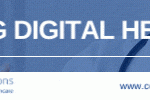Specialists from Budapest University of Technology and Economics (BME) and Semmelweis University are developing an app based on speech analysis, designed to help diagnose depression.
The AI-based technology is hoped to speed up screening for the disorder, and is currently functional, however it requires further testing before launching the developers said.
Work began on the app in 2012, following BME’s involvement in a research project with the Concordia European Space Agency. The project aimed to measure the psychological state of scientists working in Antarctica, as they are based in isolated and hard-to-reach places with an extreme climate. The Hungarian researchers wanted to identify changes in their psychological state using regularly recorded speech samples.
Dr. Bálint Hajduska-Dér, assistant professor at the Department of Psychiatry and Psychotherapy at Semmelweis University, Budapest, said: “Researchers have been trying to define non-invasive biomarkers (objectively measurable characteristics) that can help recognise depression earlier and speed up the diagnostic process for a long time.”
“The speech of depressed patients usually becomes more monotonous and quieter; they pause more often. We teach these characteristics to the software using Support Vector Regression,” explains Dr. Gábor Kiss, a scientific associate at BME’s Department of Telecommunications and Media Informatics.
In their research study, voice samples of 218 people with depression and healthy people were used wherein the participants had to read a short, 10-sentence long story called “The North Wind and the Sun”. The specialists recorded BDI scores, age, gender, smoking, medication and any disease affecting their speech. HAMD scores were also recorded from 20% (43) of the participants.
The researchers compared different physical characteristics in each speech sample, including sound spectrum, voice dynamics or rhythm.
The results showed the app had 84% accuracy in screening people with depression when the software was “trained” with the clinician-completed HAMD test scores, versus 76% accuracy when using the self-administered BDI test results. This highlighted the potential that with the help of acoustic biomarkers, depression could be identified earlier and “an automated decision-making software would be a highlight beneficial diagnostic tool,” said Dr Gábor Kiss.
The researchers added that the application could also be used to monitor patient improvement and measure the effectiveness of various therapies. The team are now currently testing the application in other languages to create a fully language-independent software. It is hoped that the app will also be able to screen for signs of Parkinson’s disease, dysvpophonia and other disorders affecting speech, in the future.
To find out more about the app, please click here.




